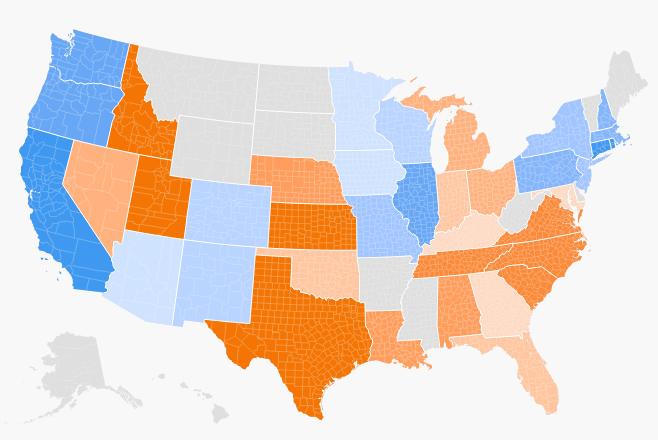Excessive regulations can hinder the success of small businesses and, in some cases, can cause an entrepreneur to choose to locate a prospective business in a different state, according to a new survey by small business resources website Thumbtack.
“Creating a business climate that is welcoming to small, dynamic businesses is more important than ever, but rarely does anyone ask small business owners themselves about what makes for a pro-entrepreneur environment,” says Jon Lieber, Chief Economist of Thumbtack. “Thousands of small business owners across the country told us that the keys to a pro-growth environment are ease of compliance with tax and regulatory systems and helpful training programs.”
So, which states have the most “business friendly” environments? According to the third annual Small Business Friendliness Survey, here are the top five:
- Utah
- Idaho
- Texas
- Virginia
- Louisiana
The worst states: California, Rhode Island, Illinois, Connecticut and New Jersey. The worst cities: Sacramento, Providence and Buffalo.
The survey found that the states with the more favorable ratings, specifically Texas, Utah and Idaho, have been rated in the top five each year the survey has been performed, and that the friendliness of professional licensing requirements was the most important regulatory issue in determining a state's overall friendliness to small businesses. Closely following licensing requirements was the ease of filing taxes.
As with previous years, tax rates was a less important factor than the ease of regulatory compliance in determining the overall friendliness score of a jurisdiction. Two-thirds of respondents said they paid their “fair share” of taxes – that is, they felt like they were neither under-paying nor over-paying.
Small business owners who were aware of training programs offered by their government were significantly more likely to say their government was friendly to small business than those who weren't. Awareness of training programs raised overall scores by 10 percent, while 76 percent of those who said they were aware of government-sponsored training programs for business owners ranked their local government as “somewhat” or “very supportive,” and only 8 percent of these said local government was unsupportive.
“It is critical to the economic health of every city and state to create an entrepreneur-friendly environment,” said Dane Stangler, vice president of Research and Policy at the Kauffman Foundation. “Policymakers put themselves in the best position to encourage sustainable growth and long-term prosperity by listening to the voices of small business owners themselves.”
Thanks for reading CPA Practice Advisor!
Subscribe Already registered? Log In
Need more information? Read the FAQs
Tags: Small Business




